EARLALL Workshop in Mechelen Highlights Regional Collaboration for Stronger VET and ALE
10/11/2025
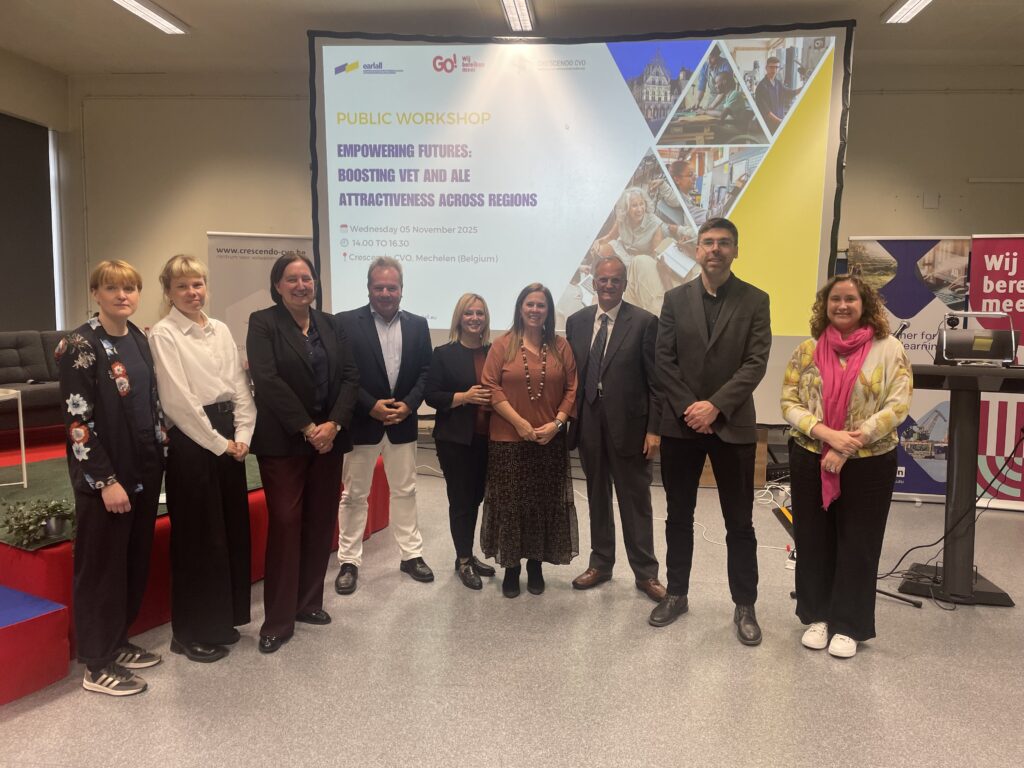
On 5 November 2025, EARLALL, in cooperation with Crescendo CVO and GO! The Education of the Flemish Community, organised the workshop “Empowering Futures: Boosting VET and ALE Attractiveness Across Regions” in Mechelen, Belgium.
The event, held as part of the three-day EARLALL General Assembly and Annual Meeting, brought together representatives from EARLALL member regions, alongside regional and local authorities, the European Commission, research institutions, and practitioners in Vocational Education and Training (VET) and Adult Learning and Education (ALE).
The workshop, moderated by Míriam Castillo González, Head of Unit for Programmes and Projects at the Directorate-General for Vocational Education and Training, Ministry of Education and VET of Catalonia, provided a platform for exchanging experiences and discussing how to enhance the appeal and value of VET and ALE across European regions. In her introduction, she warmly welcomed participants from across Europe, noting the inspiring setting at Crescendo CVO in Mechelen. She emphasised that the session aimed to make VET and ALE “not second options, but first choices” – modern, flexible, and empowering pathways that open doors to meaningful careers and lifelong learning.
Opening and Regional Context
The event was opened by Sabe de Graef, Councillor of the City of Mechelen, who underlined the key role of local authorities in building inclusive and engaging learning environments. She noted that Mechelen continues to address high school dropout rates (around 18%, higher in VET) by promoting a positive school climate, youth engagement, and strong partnerships with the health and employment sectors.
de Graef also presented a local initiative, “learning shop of Mechelen” a network of over 160 partners that has supported from 150 to 1,300 individuals over four years, helping early school leavers return to education and achieve a secondary qualification.
This was followed by a presentation from Jens Vermeersch (Internationalisation Policy Coordinator at GO! Onderwijs van de Vlaamse Gemeenschap) and Marleen Mast (Director of Crescendo CVO), who introduced the “Attractiveness in Flanders” initiatives. Their intervention showcased how Flanders is building a positive image of VET by focusing on high-quality teaching, collaboration with enterprises, and flexible learning pathways for both young people and adult learners.
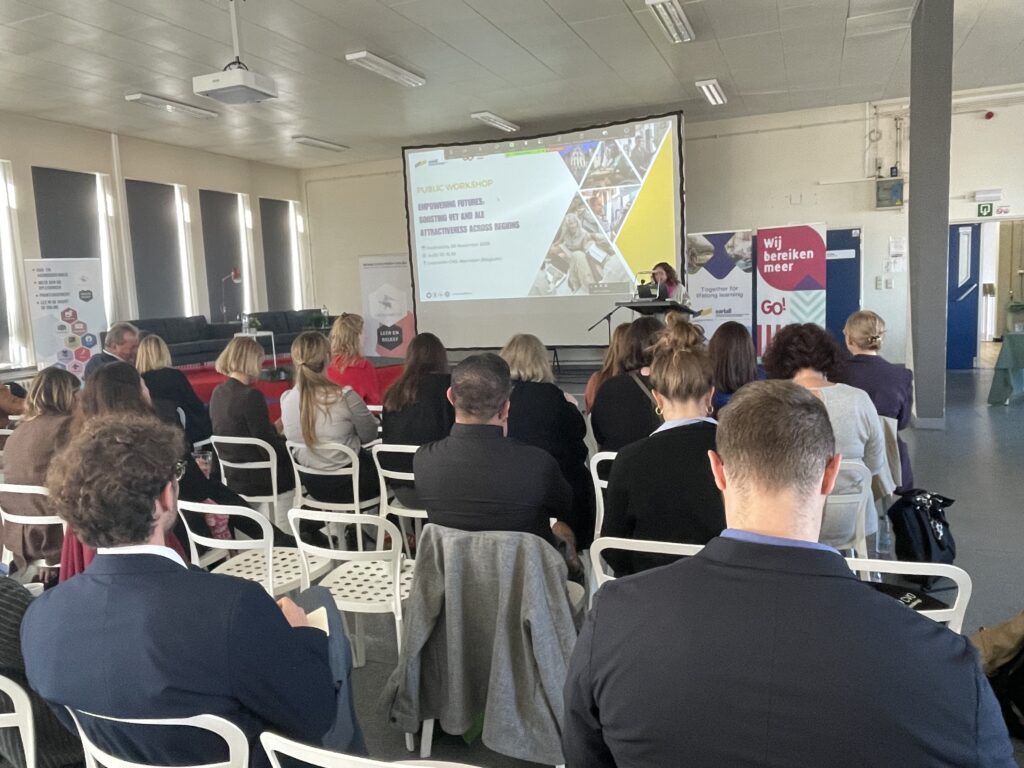
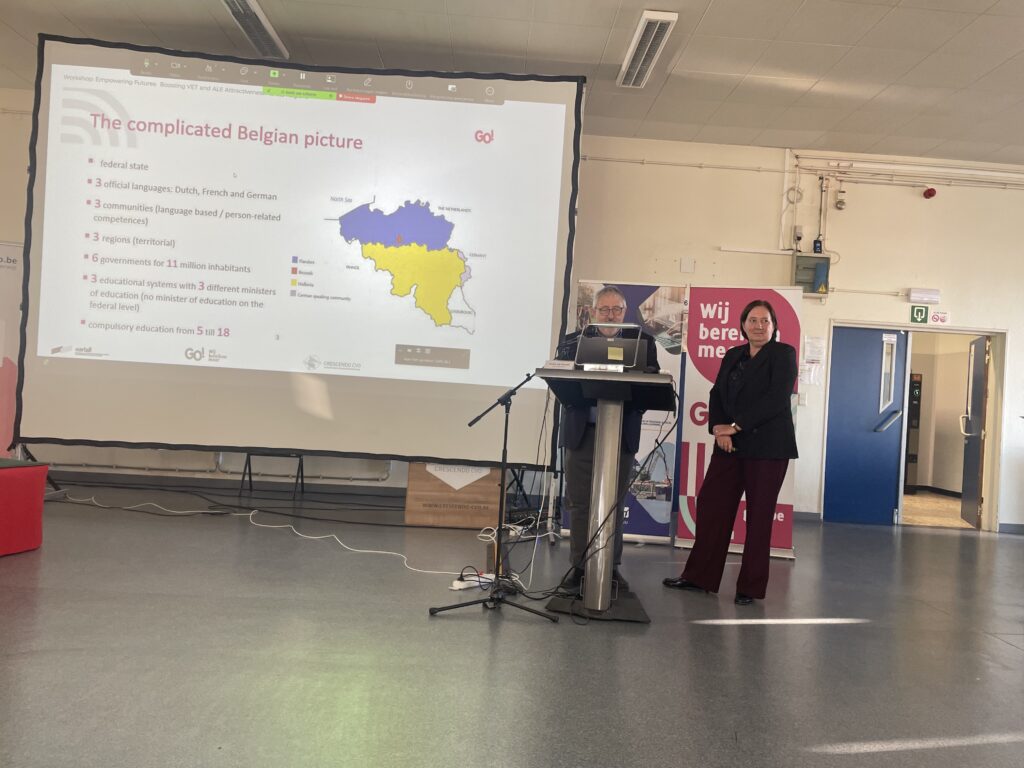
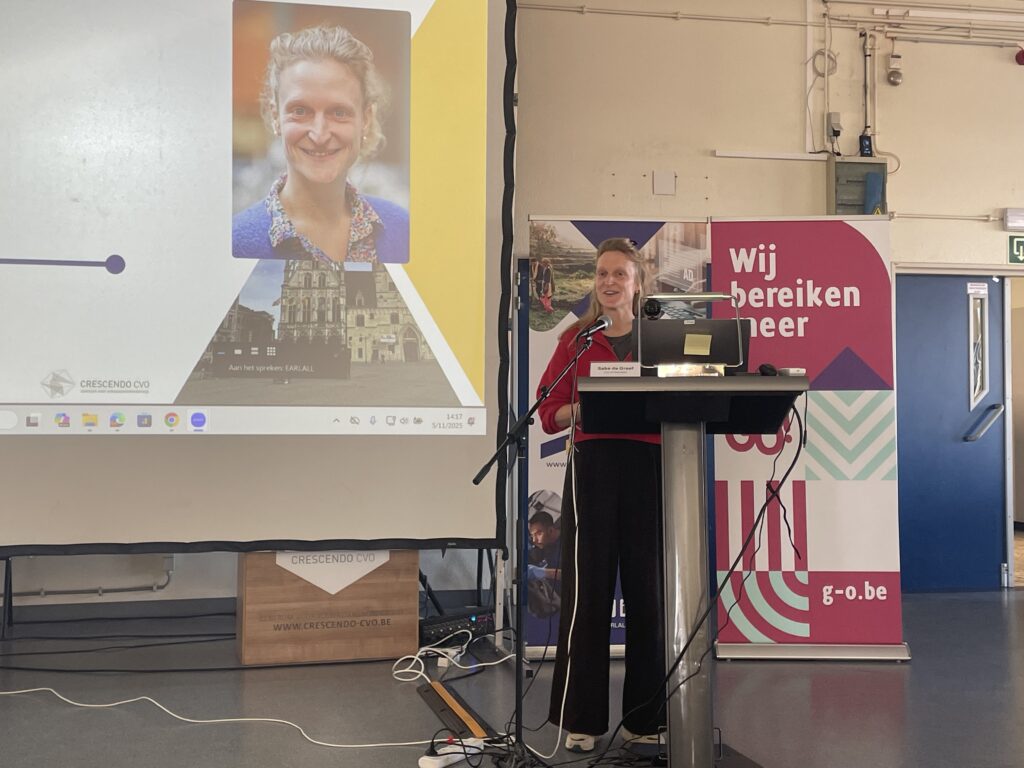
European Commission’s views on the Future of VET
A keynote speech by Hjordis Virgarsdottir Dalsgaard from the European Commission’s Directorate-General for Employment, Social Affairs and Inclusion provided a broader European perspective.
Her presentation outlined how recent EU policy developments – from the 2024–2029 European Commission Political Guidelines and the 2024 Draghi Report to the upcomingEuropean VET Policy 2026–2030 – reinforce a strong focus on skills, innovation, and inclusion.
Dalsgaard emphasised that the Herning Declaration (2025) renews Europe’s joint commitment to VET for the period 2026–2030, reaffirming the 2020 VET Recommendation and the Osnabrück Declaration, while introducing the concept of a “Union of Skills”.
She also presented recent EU figures showing that over half of young Europeans (52.4%) are enrolled in VET programmes, with two-thirds engaged in work-based learning.The graduate employment rate stands at 80%, close to the European target of 82%. However, she noted that VET learner mobility remains low, with only 5.3% of students participating in cross-border experiences in 2023 – still below the 2030 target of 12%.
Research and Policy Implications
Dr Paul Redmond, Associate Research Professor at the Economic and Social Research Institute (Ireland), presented the latest findings from the TRAILS – Enabling data analytics for actions tackling skills shortages & mismatch (European Union’s Horizon Europe research and innovation programme) research project on participation in VET and ALE, and discussed their implications for regional policymaking. He underlined that the attractiveness of vocational and adult education depends not only on the quality of programmes, but also on social perception, including the status of vocational professions and the involvement of employers in the training process.
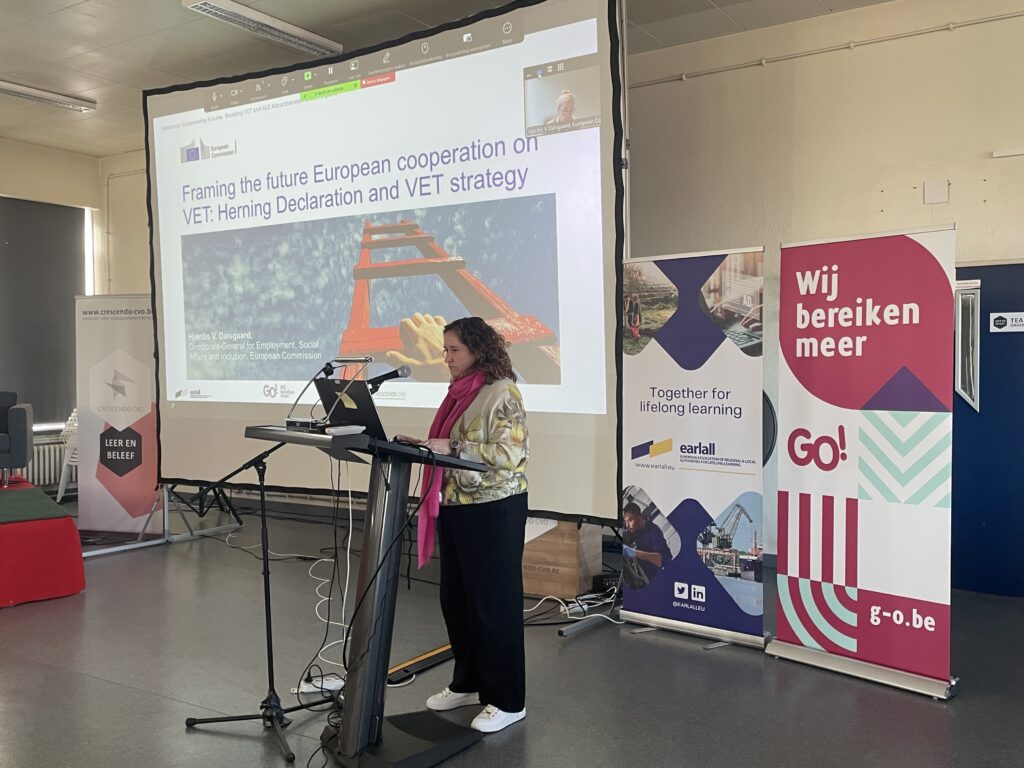
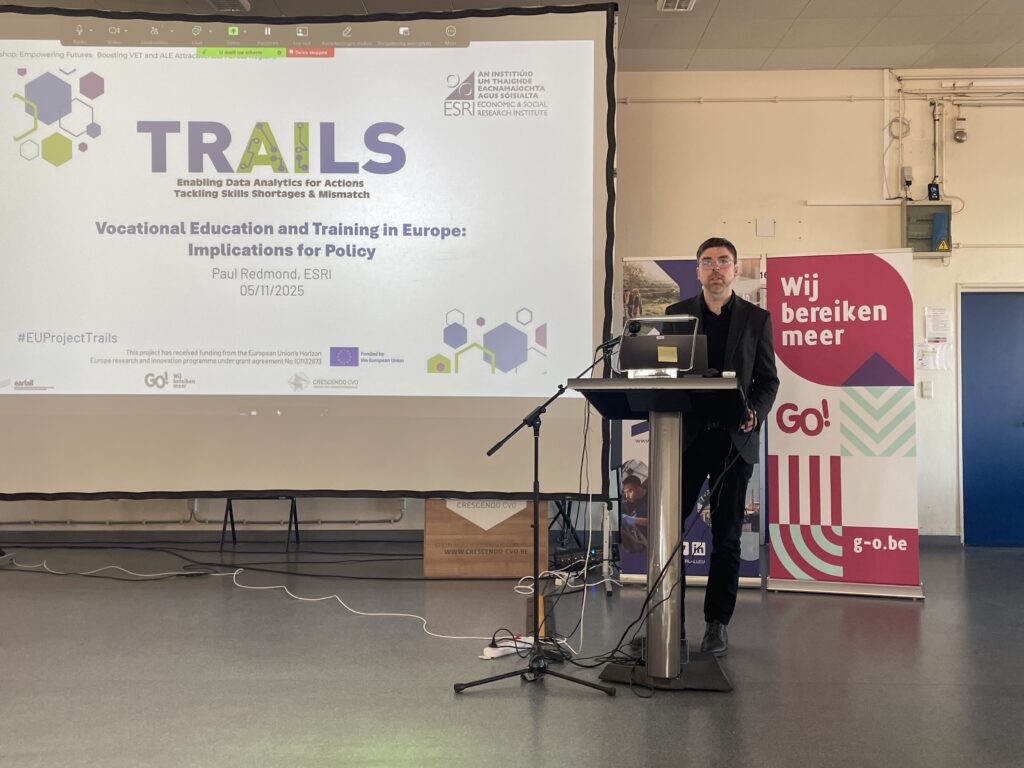
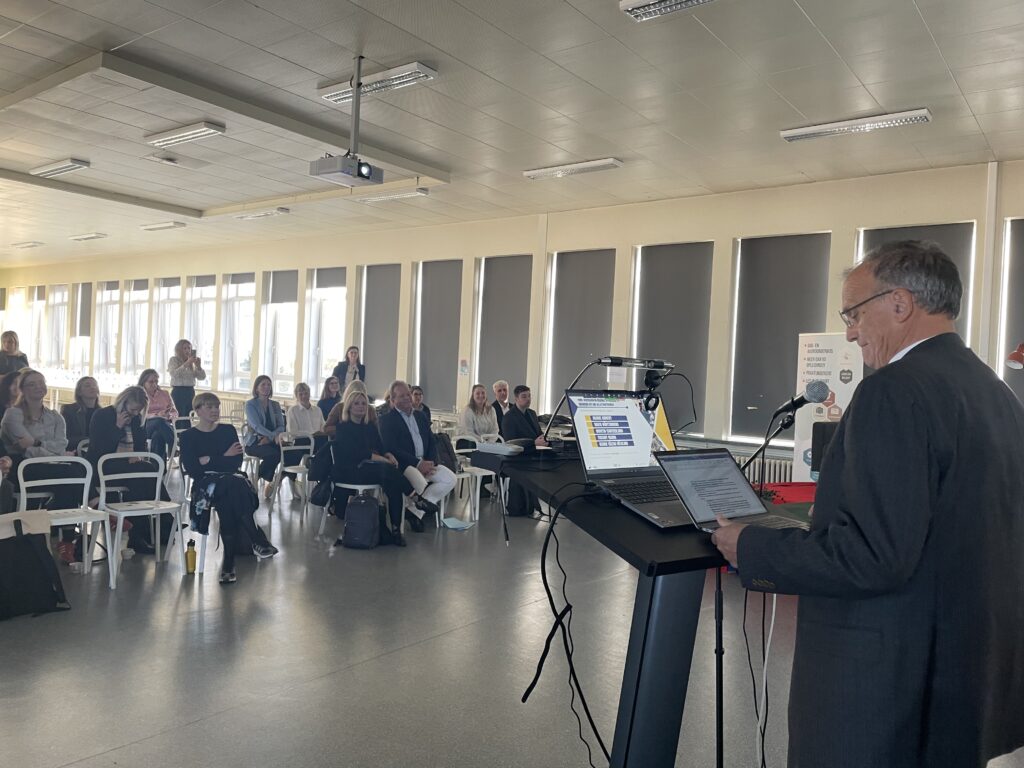
Panel Discussion: Regional Approaches
A lively panel discussion, moderated by Professor Paolo Federighi from the University of Florence, allowed EARLALL regions to share their strategies for strengthening VET and ALE attractiveness.
The panel unfolded in two thematic rounds following the Herning Declaration on VET (adopted in September 2025), which sets out a renewed commitment to strengthening European cooperation in the field of Vocational Education and Training (VET).
- Round 1 focused on: Aligning VET with labour market needs through partnerships and the use of skills intelligence data;
- Round 2 focused on: Attracting new learners and engaging adults, particularly those with low skills, in upskilling and reskilling initiatives.
Knut Becker from Baden-Württemberg’s Competence Centre for Adult Basic Education presented “Alliance for Lifelong Learning” and examples for Workplace-Oriented VET.
Inge Gorostiaga Luzárraga, Basque Country Director General for Digital Transformation and Advanced Learning at the Ministry of Education, described a collaborative VET network involving schools, enterprises, and innovation centres, enabling flexible, lifelong learning pathways tailored to individual needs.
From the Directorate for Education, Training, Research and Labour, Tuscany region, Miriana Bucalossioutlined how regional skills governance translates the Herning Declaration’s objectives into action through social dialogue, tripartite cooperation, and tools such as the Quality Charter for Apprenticeships.
Maria Nordh, Policy Advisor from Region Västra Götaland (Sweden), presented the region’s coordinated approach to strategic skills supply and labour market matching. She explained how Västra Götaland aligns regional development, skills provision, and lifelong learning through systematic dialogues with industry and forums bringing together education providers, employers, and public agencies.
Finally, Julia Burkhard from Movetia (Switzerland) presented the Swiss model, showing how regional coordination and cross-border cooperation enhance the quality, mobility, and international visibility of VET.
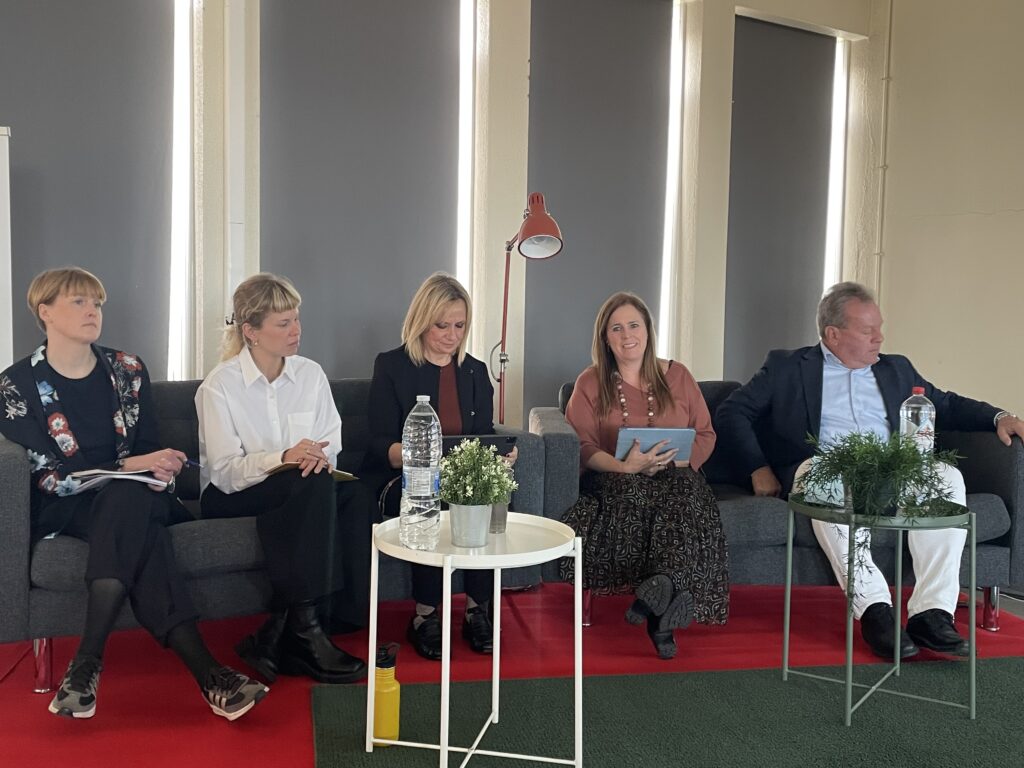
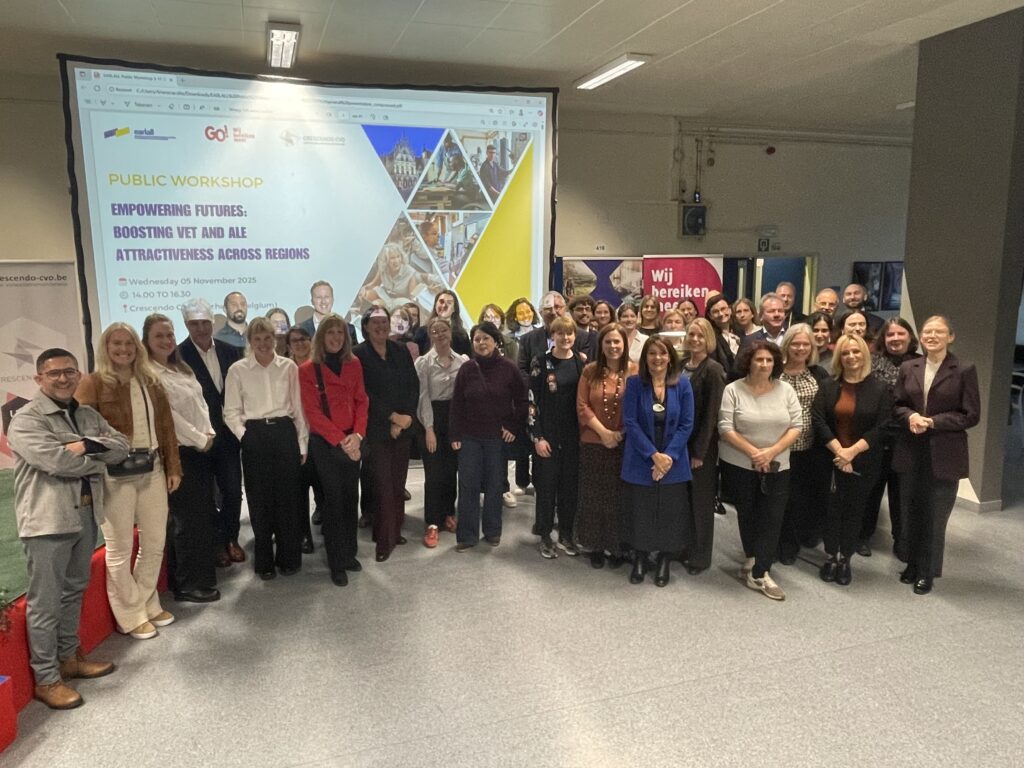
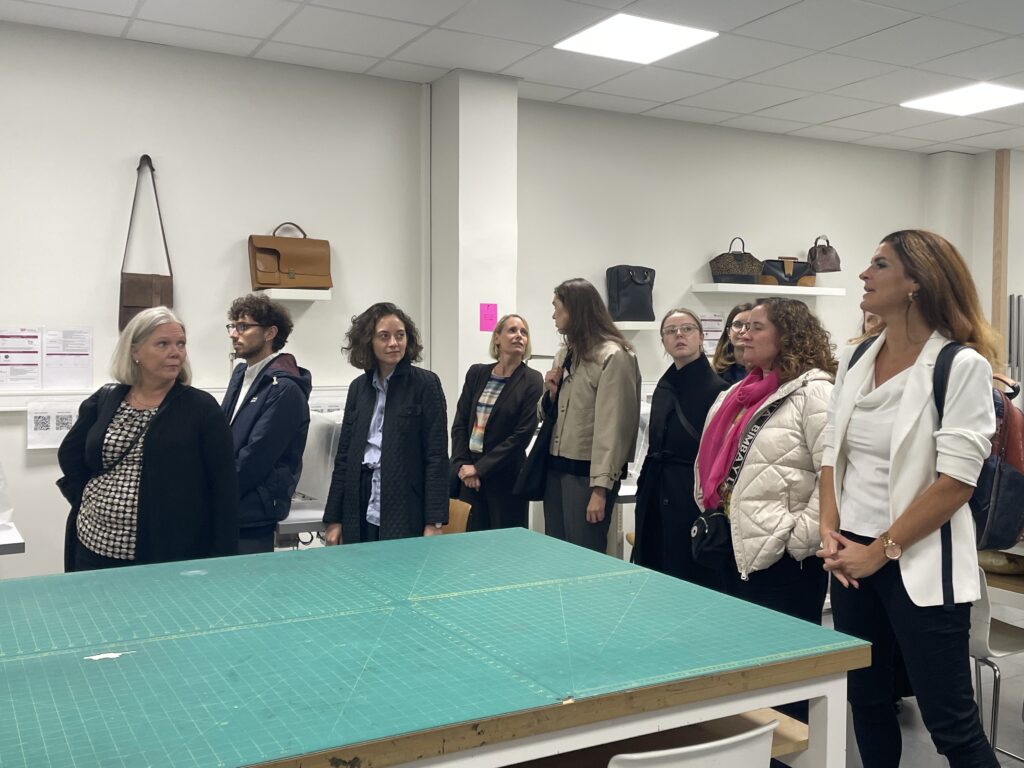
Closing and Study Visit
Míriam Castillo González thanked Professor Federighi and all panellists for their insightful contributions, noting that examples from Baden-Württemberg, the Basque Country, Tuscany, Västra Götaland, and Switzerland showed how regional collaboration makes education more inclusive and responsive to change.
She underlined that regions do not only implement European policies – they shape them, turning frameworks into real opportunities for learners and communities. Trueattractiveness in education, she added, comes from relevance – when learning connects to purpose and growth.
Míriam concluded by stressing the role of EARLALL in fostering cooperation and giving regions a strong collective voice, encouraging participants to keep working together to make lifelong learning a lived reality for all.
The session ended with an invitation to join the study visit to Crescendo CVO, where participants could observe innovative local practices supporting the development of VET and ALE in the Mechelen area.
Resources
- Workshop speakers’ presentations (all in one)

